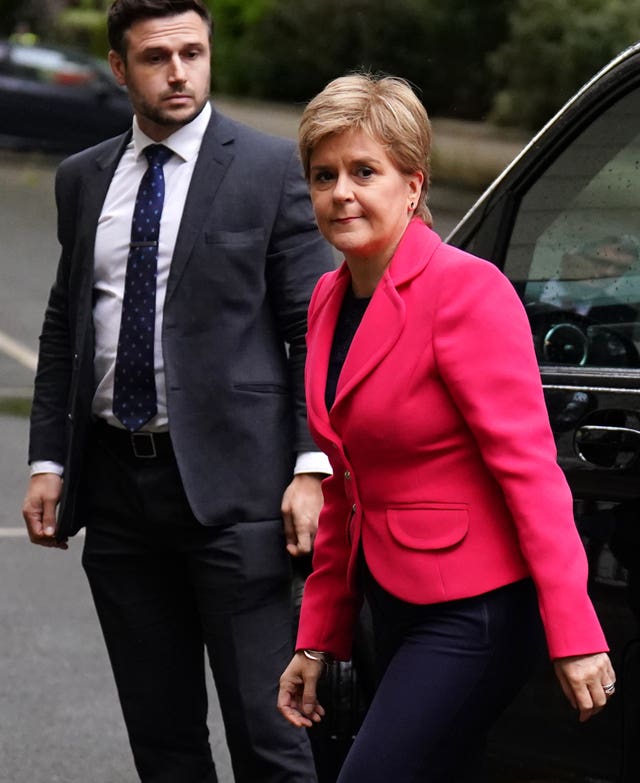Scotland’s former first minister Nicola Sturgeon has told the UK Covid-19 Inquiry the government she led during the pandemic “did our best… but did not get everything right”.
As she began giving evidence, she said learning from the pandemic is of “critical importance”.
She added: “Every day the government I led did our best to take the best possible decisions, but equally we did not get everything right.”
Ms Sturgeon offered her “sympathies and condolences to all those who suffered as a result of the Covid-19 pandemic”.

She said: “The pandemic may be over but for many people their suffering continues and there is not a day that passes that I don’t think about that.”
Ms Sturgeon has repeatedly said the pandemic was one of the hardest things she has ever had to deal with in her political career.
In her resignation speech as first minister, she said: “Leading this country through the Covid pandemic is by far the toughest thing I’ve done.
“It may well be the toughest thing I ever do. I certainly hope so.”
Earlier, Sir Jeremy Farrar, a former member of the Scientific Advisory Group for Emergencies (Sage), which advised the UK Government during the pandemic, gave evidence.
He said having a so-called “red team” to constructively challenge scientific thinking “from the outside”, could add a different perspective to a pandemic response in the future.
He said this system worked well when he was part of a similar enterprise in the US.
Former Wellcome director Sir Jeremy said that Independent Sage – set up by former chief scientific adviser to the UK Government Sir David King – tried to work like a red team “but unfortunately, for reasons others can debate, sometimes it became more confrontational than perhaps was constructive”.
Ms Sturgeon’s evidence will be followed by that of former deputy first minister John Swinney.
On Wednesday, senior Scottish Government officials began giving evidence to the inquiry.
Former Scotland health secretary Jeane Freeman said that, while Scotland could have better handled the pandemic, there was ultimately “no plan” that could have helped the country cope with Covid.
“There were certainly areas where Scotland could have been better prepared in terms of the underlying structure and delivery of all those recommendations,” she said.
“But Scotland, like other countries throughout the world, was dealing with a virus which was unknown and new.
“So, in that sense, I don’t believe there is a plan that would have been possible that would have been able, in and of itself, to cope with Covid-19.”




Comments: Our rules
We want our comments to be a lively and valuable part of our community - a place where readers can debate and engage with the most important local issues. The ability to comment on our stories is a privilege, not a right, however, and that privilege may be withdrawn if it is abused or misused.
Please report any comments that break our rules.
Read the rules hereLast Updated:
Report this comment Cancel